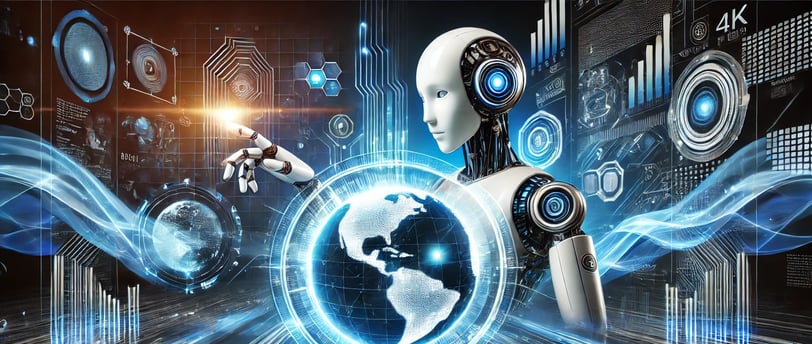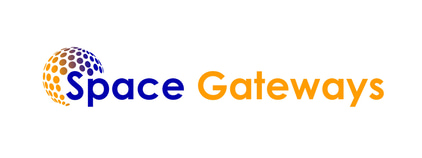The AI Revolution: Opportunities and Challenges for Software Developers
TECH INSIGHTS


Artificial Intelligence (AI) is revolutionizing industries across the globe, and programming is no exception. With rapid advancements in machine learning, natural language processing, and generative AI models, the way programmers and software engineers approach their craft is undergoing a significant transformation. This article explores how AI is changing the landscape of software development, the evolving role of coders, and what the future holds for this critical profession.
AI-powered tools such as GitHub Copilot and ChatGPT have already demonstrated their ability to assist developers by generating code snippets, suggesting improvements, and even debugging errors. These tools help reduce the time spent on repetitive tasks, allowing developers to focus on higher-level problem-solving and design. Generative AI can now produce functional code from natural language prompts. For instance, a user can describe the desired functionality, and AI can generate the corresponding code. While this doesn’t eliminate the need for developers, it shifts their role toward supervising and refining AI-generated outputs.
Debugging and testing processes are also evolving with AI's intervention. Machine learning models trained on vast datasets can identify potential bugs and vulnerabilities faster than traditional methods, making software more robust and secure. Additionally, development tools are becoming smarter, integrating AI to offer advanced autocomplete features, error analysis, and optimization suggestions. This streamlines workflows and increases productivity.
As AI takes over routine tasks, programmers are finding their roles shifting toward creativity, strategy, and architecture. They are now more than just coders; they are problem solvers and innovators, focusing on identifying complex problems and designing innovative solutions. AI has become a tool to aid their creativity rather than a replacement.
Programmers are also taking on the role of AI trainers and supervisors. They ensure that AI systems are accurate, unbiased, and aligned with business objectives. Overseeing AI outputs for quality assurance is becoming an integral part of their work. Additionally, domain-specific expertise is gaining importance. While AI tools excel in generalization, they often lack industry-specific insights. Programmers with specialization in fields such as healthcare, finance, or gaming ensure that AI technologies are tailored to meet specific needs.
The future of coding is a collaborative one, where human programmers and AI systems work together to achieve unprecedented efficiency and innovation. However, this partnership requires coders to continuously adapt and acquire new skills. The rapid pace of AI development necessitates a commitment to lifelong learning. Skills in AI model training, data analysis, and ethical AI design will become essential for staying relevant.
As AI becomes more autonomous, programmers will play a crucial role in ensuring that ethical guidelines are integrated into the development process. Addressing issues such as bias, fairness, and accountability will be paramount. At the same time, the unique human ability to think creatively and envision novel solutions will remain irreplaceable. Coders will act as the architects of future systems, using AI as a foundational tool.
Software development is also becoming more interdisciplinary, requiring programmers to collaborate closely with designers, data scientists, and business leaders. This collaborative approach ensures the delivery of AI-driven solutions that are both innovative and practical.
AI is not a threat to programmers but a transformative force reshaping their roles and responsibilities. By automating routine tasks, enhancing productivity, and opening new avenues for innovation, AI empowers coders to focus on what they do best—solving problems and building the future. The key lies in adaptation, continuous learning, and embracing the collaborative potential of AI.
Visual Additions
To complement this narrative, imagine an illustration of an AI system assisting a programmer, with code dynamically flowing on multiple screens. Picture a futuristic workspace where a programmer collaborates with an AI hologram, surrounded by an atmosphere of cutting-edge innovation. Finally, envision a flowchart that depicts the synergy between human creativity and AI automation in software development.
By understanding and adapting to the AI revolution, programmers can ensure their relevance and lead the charge in shaping the technological future.
Conclusion
As we stand on the cusp of a technological revolution driven by AI, the role of programmers is evolving but far from disappearing. Instead, it is expanding to encompass creativity, oversight, and collaboration at unprecedented levels. By embracing AI as an ally rather than a competitor, programmers can unlock new dimensions of productivity and innovation. The future belongs to those who adapt, learn continuously, and harness the power of AI to push the boundaries of what is possible. In this exciting new era, coders are not just participants but leaders shaping the digital landscape.
